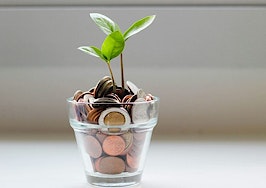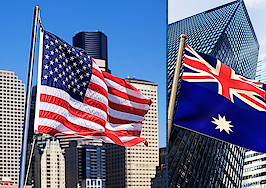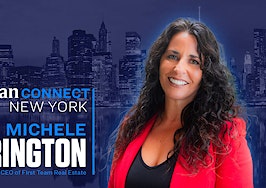The moment has arrived — the moment to take charge. This summer, at Inman Connect Las Vegas, July 30-Aug. 1, 2024, experience the complete reinvention of the most important event in real estate. Join your peers and the industry’s best as we shape the future — together. Learn more.
Fires devastated the island of Maui just seven months ago, killing 100 people and displacing thousands as winds fueled flames that spread across more than two miles.
Visitor arrivals on the island dropped by 58 percent year over year in August, and the island’s recovery in all sectors has a long way to go.
Matt Beall, CEO of Hawaii Life, said that as those individuals who might have otherwise invested in Maui real estate could no longer do so, nearly all of that demand was redirected to and absorbed by other islands. With inventory on the rent- and buy-side already tight following the pandemic surge in demand, that would-be Maui demand has stressed other islands’ markets.
“It’s just really exacerbated already-existing challenges,” Beall said.
The CEO recently sat down with Inman to discuss the current state of the market, a welcome return to seasonality, a rise in off-market listings and more. Here’s what he had to say, edited lightly for brevity and clarity.
Inman: What have things been like in the wake of the Maui fires?

Matt Beall | Hawaii Life
Matt Beall: In terms of recovery, we have a long way to go. It’s still pretty daunting taken from a business standpoint. Tourism, obviously on Maui, took a very immediate hit and there was all this question over whether or not it was appropriate to go, despite the fact that the fires, in terms of resort areas, impacted West Maui the most and other resort areas were still open. So there was a real consequential economic loss after the fires from visitors not going there.
But one byproduct of that was that the other islands kind of absorbed that interest in that those people who were otherwise going to Maui went to Kauai or the Big Island or Oahu, so there was a corresponding uptick in those markets, which is kind of interesting. It happened at a horrible time for housing in general — almost 20 percent of West Maui’s housing stock was destroyed and more homes burned than had been permitted on Maui in aggregate of the last five years.
It came at a time, especially post-pandemic, when housing at every level in the real estate market was extraordinarily strained. It’s just really exacerbated already-existing challenges. And, having Maui in the global news for as long as it was, even about something that’s obviously horrific, actually serves to increase demand, which I know sounds a little morbid.
But if you think of the old adage, ‘There’s no such thing as bad news,’ to all those people that have a heartstring pre-wired to Maui (and we’ve seen this after other events in Hawaii, whether it was the volcanic eruption or the flood in 2018) there’s almost this corresponding demand that happens after the event, which is actually somewhat concerning, because the [rental and for-sale markets] just can’t handle that demand.
What’s ironic is, it impacted the rental market more than the for-sale market; it was just more intense. You’ve got people fleeing a pandemic or anything else that was going on — fires on the West Coast, political upheaval, all the things that happened from the onset of the pandemic to probably the middle of ’22, it just flooded activity. And it was all domestic because a lot of foreign nationals couldn’t get here.
This certainly holds true for the luxury and ultra-luxury segments, but a lot of those people, where those trades would have otherwise been more transient, there would have been a second or third home or whatever, that was not the case. They moved here, they put their kids in school, they got involved in the community, put roots down, and many of them are still here. It’s very different than what we’ve seen in previous market cycles.
So it sounds like there were some people looking to get a temporary oasis through a rental, but others who were really looking to put down roots?
I think it was in our big market report for 2022 in the high-end market that I predicted there would be more of a shake-out — that the pandemic’s over, people are going back to work, maybe some of them had escapist, romantic fantasies about Hawaii that didn’t pan out to be true, or whatever. I thought there would be a bigger segment of people who went back to the continent, so to speak, and we didn’t really see that.
Some of that is because Hawaii has a way of spoiling you — once you realize how great it is, you’re like, This is awesome. Some of it may also be rate-driven, because if you think about it, even though the majority of those purchases were cash, if you’re going to sell that home and then buy something else, sometimes there might be a loan involved. And now you’re going into a loan environment that’s like double what it was. So we didn’t really see a lot of inventory coming on.
But what we did see with a lot of people who chose to go back [to the mainland] was they put their home under property management. So our property management division has grown really robustly, both long- and short-term, but we haven’t seen an onslaught of for-sale.
And you mentioned to me earlier that you’ve had a recent rise in off-market listings, though — how does that play into the inventory issues?
We definitely have more than we’ve ever had, which isn’t saying a ton. Usually, there’s kind of a smattering. The reasons are as wide as they’ve ever been — sometimes it’s someone who’s had some degree of fame or notoriety and doesn’t want to be in the press and have people driving by their house or that kind of thing. Sometimes they might have assets, an art collection or something, in the home that’s really valuable.
Sometimes, frankly, they just know the house is so overpriced that it might be last off the market if it were public. So it really varies. For the most part, they’re pretty valid and I understand why they wouldn’t want a public listing.
I think we’ve had more off-market listings than we’ve ever had and we might also be cursed by the randomness of having had success with those, because it’s certainly not easy. It’s a very difficult thing, but we’ve got a pretty healthy market share in that space in the high-end, and sometimes, even if we’re only limited to our clients, we’re still able to impact a trade, and that’s good.
So you’re saying, in most cases, it’s the client who is kind of pushing to sell the property as an off-market listing, right?
In almost every case, because I don’t think any of us are in denial about the reality — it’s a pretty big hindrance. When we started this company, we were a creative agency that got into lead generation. So we are fully versed in how wide the funnel needs to be and what a comprehensive marketing campaign looks like. You’re leaving a lot on the table if you can’t be public with your listing.
Some people, like I said, have very legitimate privacy and security concerns, and all other kinds of reasons that are very valid. So, the great majority of the time, we’re taking the client’s instruction. And we have to work around the challenges of Clear Cooperation and the rest of it.
Got it. What else is happening in the market right now? Are you starting to see a seasonal change in Hawaii, if that even happens typically in your market?
It’s more that it’s returning to some sense of seasonality. During COVID, it just blew it all out. One small example is the west side of the Big Island, so the Kona side of Hawaii Island and the Kohala Coast and South Maui, those are really sunny areas, almost guaranteed sun year-round. As a consequence, they draw a lot of snowbirds, a lot of people from the Pacific Northwest, and there historically had been a season there, which is kind of December through about April or May when it’s really just the thick of winter elsewhere. People obviously want to come to that guaranteed sun.
All that seasonality, and there are different examples of this — foreign nationals had their own times, and different islands might see different spikes at different times — but all of that was just completely eviscerated during COVID. There was one season, and it was all on, all the time.
Since about the middle of ’22, we’ve seen a return to the more historic seasonality. So, summers are more family times, and people in Honolulu might see an uptick in trading because it’s related to kids being out of school so families can move.
With respect to the market, the future is a bit pixelated. There’s a lack of predictability, but I think the return to market cycles of visitors and the way the market behaves is kind of helpful because it creates a little more certainty.
I’m sure. Speaking of seasonal and other trends, I was wondering, because Hawaii is so removed from the mainland, whether or not you believe you’re typically on the front- or back-end of trends that hit the rest of the continental U.S.?
It’s both — I think it depends on the trend. It’s hard to generalize because Hawaii is really small. The overlying reality goes back to the basics of supply and demand. There’s just very low supply, even geographically. And now, inventory is infinitesimal, so that’s the overriding rule.
We do get the same kind of economic headwinds and challenges, so there are huge segments of the market that are rate-impacted. So the other side of that leading trend is that a lot of our clients are from the West Coast, and they might be coming from a market that’s behaving entirely differently than the market in Hawaii. They might be in a market where you put your house on the market and then you get 15 offers in a week, and pick out of those offers the highest and best; that may not apply here. So you have to set those expectations in the right way ….
I think the broader economic stuff has waned, meaning it used to be that people would say [a decade or more ago] “Oh, Hawaii follows the West Coast and we know whatever happens on the coast will hit Hawaii six months later.” That’s just false — it’s not the case anymore.
I think that’s largely because of the supply and demand and housing constraints that we have where we’re just way behind on providing housing for the people that already live here. We’re in this unique, specific market, that isn’t dragged along by what’s going on on the West Coast and the rest of the country. The only exception to that might be these kinds of macro implications, like interest rates or [talk of a recession]. That kind of zeitgeist gave people pause on both sides.
What do you think about Salesforce CEO Marc Benioff buying up a bunch of land in Hawaii, as recent reports have noted?
I can’t comment specifically on Benioff, but I will say, it’s funny to me, and I think the tech billionaire profile is such a lightning rod and catnip for the press. It’s just so easy to write that story and then watch it cascade and get picked up everywhere … There are people who have bought way more land totally under the radar that no one writes about and no one cares about and it’s just because they are these figures, and they’ve got some degree of activity that becomes interesting. If you zoom out at all, this is boring stuff … I just take all of that with a giant grain of salt.
But after the fires, and this has held for every natural disaster and might be a trend worth noting, a lot of these really wealthy people, famous or not, really contributed in an outsized way in a time of desperate need. And even that contribution, which is massive, they get heat for that that it’s not enough or “They didn’t do blah, blah, blah” … It’s sad because it’s awesome that they’re here and engaged enough to make a difference.
It used to be that many of us ignored the transient visitor, that if you had a second or third home you weren’t really rooted enough to be engaged and make a difference. But that has not been the case with the people that came here during COVID. They are way more engaged and way more philanthropic and way more community oriented … I have seen just such an outpouring of support and community engagement and involvement and that kind of time, talent and treasure from people who are really relatively new to Hawaii, and it’s just been awesome.
Author’s note: As Inman and Beall spoke, news broke that Benioff had donated $150 million to Hawaii hospitals and that he had donated much of the land he had purchased in recent years.
Get Inman’s Luxury Lens Newsletter delivered right to your inbox. A weekly deep dive into the biggest news in the world of high-end real estate delivered every Friday. Click here to subscribe.












